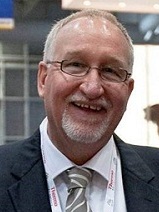-
The Human Proteome Project’s Efforts to Find the “Missing Proteins” and Develop a Common Informatics Language
Mark S. Baker on behalf of the HUPO HPP Teams
Professor Macquarie University 

The HPP is a global initiative aiming to generate maps of the protein-based molecular architecture of the human body and become a resource to help elucidate biological and molecular function and advance diagnosis and treatment of diseases. The HPP is broadly divided into the Chromosomal-HPP and Biology/Disease-HPP. The C-HPP activity addresses evidence for the existence of each of the ~20,300 proteins coded for by the human genome irrespective of any interesting biology that the protein may have. The B/D-HPP focusses upon human biology and disease-related proteins, pathways, post-translational modifications and interactions. Collectively, the two approaches are built on 3 platforms (mass spectrometry, affinity reagents and informatics/databases) to comprehensively map the human proteome.
I will also discuss the biology of the largest family of “missing proteins” and comment about possible biochemical characteristics that contribute to these proteins being labelled as “missing”. I discuss the need for; (i) a common HPP language, (ii) agreed metrics, (iii) re-analysis of all available mass spectrometry evidence for the olfactory receptor family, and (iv) report integrated HPP outcomes. In addition, HUPO has identified the need for a new language that allows it to explain the different “bins” into which all proteins expressed by the human genome can be carefully characterised. HUPO has called for a global approach to finding the missing proteins and I suggest that a single Wikipedia-like listing all missing proteins by gene name, searchable to a compendium of accessible/modifiable Wiki pages for each “missing proteins” may be appropriate. This would allow motivated scientists to deposit/accumulate all types of “omics” scientific data into a single repository. That repository could act as a series of clues to where, where, why, how and with what partners these proteins are expressed in the normal, stressed and diseased human tissues.